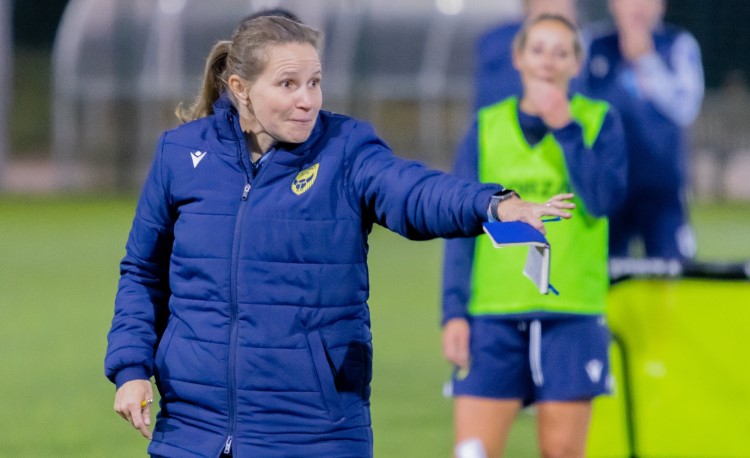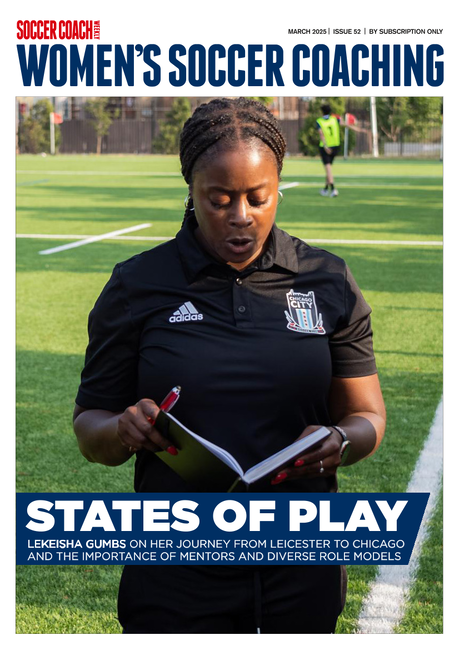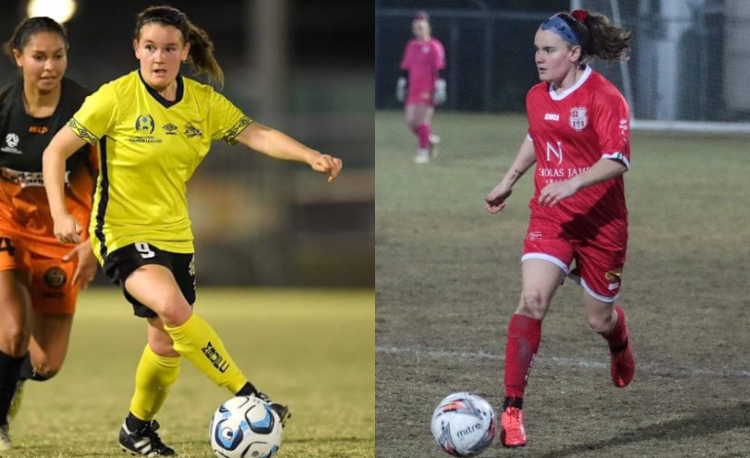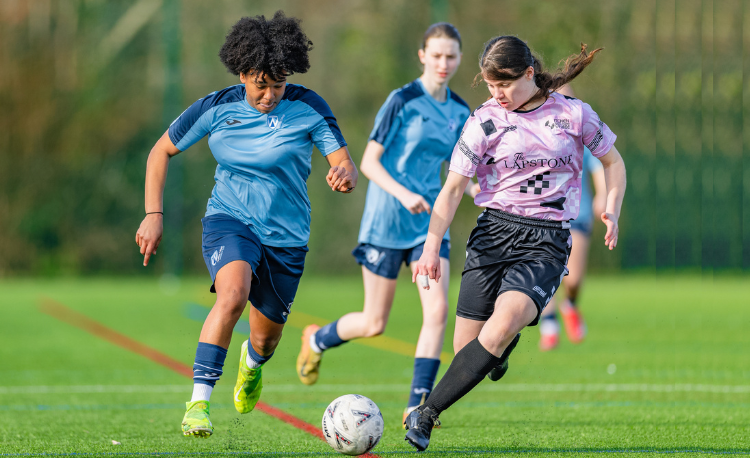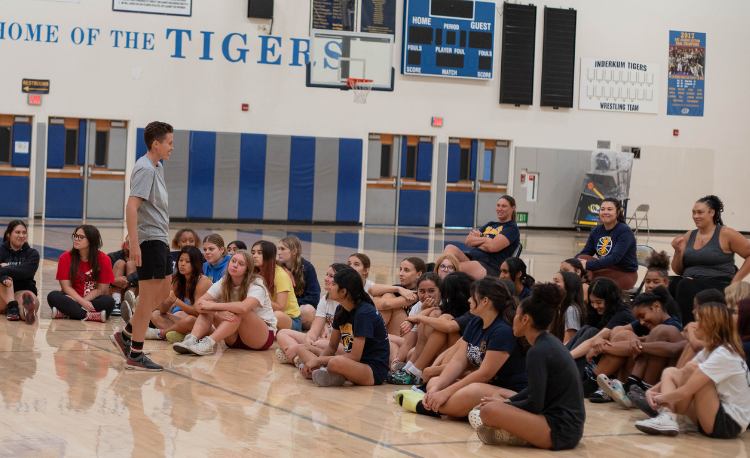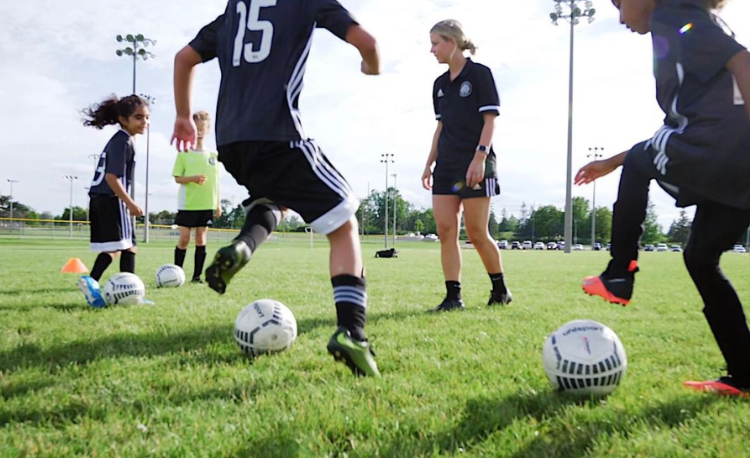You are viewing
3 of your 3 free articles
6 tips for being an adaptable coach
From being prepared for more or fewer attendees at training to letting players take the lead, Hannah Duncan describes ways to be flexible in your sessions.
There are few things more frustrating than poring over a perfectly planned session - only for things to change at the last minute.
Maybe you hadn’t expected this number of players. Perhaps they aren’t getting success and are frustrated or losing interest. It could be that you want to change the practice but don’t want to leave players unattended.
That is when the panic sets in and you feel like you are just counting down the minutes until you can throw players into a small-sided game and breathe. We’ve all been there.
Often, only experience and confidence will help you feel totally comfortable in these inevitable scenarios. But here are a few things you can do to help you feel better prepared and be adaptable to whatever is thrown your way.
01 Plan for one player more/fewer
When planning your session, you may expect 12 players to be in attendance. But, just in case, there is no harm planning for what you will do if someone drops out or someone unexpectedly turns up.
By planning ahead, you can avoid leaving players standing around, feeling like a spare part, while you think on your feet.
02 Plan groups, but ponder alternatives
Like planning for specific numbers, it can help to plan teams or groups in advance.
Do you want to keep certain players apart because they can distract each other? Do you want to challenge a player by pairing them with a stronger player?
This can help save time during your session and help you plan specific coaching points or challenges for specific groups.
03 Plan your ’STEP’ principles
STEP is a way of planning that challenges players of different abilities. It stands for ’Space, Task, Equipment, People’, all things that can be changed to vary the level of difficulty.
Consider these in advance so you are ready to make quick changes depending on what you see unfolding in your session.
Can you change the size or shape of the area or the number of players? Perhaps create underloads or overloads? Maybe consider varying the task, such as the number of passes or touches, or scoring in a gate or end zone.
04 Understand your players’ moods
Sometimes, your players simply might not be in the mood for your session. They may just want to use the hour as an outlet to release stresses or frustrations from their day.
They may just want to socialise with their friends and not be in the mood to learn. Don’t be afraid to accept defeat on your carefully constructed session plan.
Be prepared to switch to small-sided games or your players’ favourite shooting practice or tag game. The social and psychological elements are just as important as technical and tactical - and your planned session will be just as useful next week.
05 Let players choose player ownership can be a really powerful tool in trying to engage your team.
As coaches, we can often feel as though we need to have both the questions and the answers, but there’s often no harm in being ready to let your players take the lead – and you can prepare for these moments.
If you need more buy-in from a particular player, could you ask them to set a rule? If you need to challenge players socially, could you pair them up and ask them to set a task for their partner?
06 Have more equipment than you may need
If you are planning a 4v4 +2 neutral players (click here for more on using neutrals), put out enough bibs for a 5v5 +3. That way, if more players turn up than you expect, you are not floundering around for bibs.
Also, if you’ve already looked at your STEP principles and decided you might change from goals to a target zone, have the extra cones you’ll need ready.
Related Files
Newsletter Sign Up
Newsletter Sign Up
Discover the simple way to become a more effective, more successful soccer coach
In a recent survey 89% of subscribers said Women's Soccer Coaching makes them more confident, 91% said Women's Soccer Coaching makes them a more effective coach and 93% said Women's Soccer Coaching makes them more inspired.
*includes 3 coaching manuals
Get Inspired
All the latest techniques and approaches
Women's Soccer Coaching offers proven and easy to use soccer drills, coaching sessions, practice plans, small-sided games, warm-ups, training tips and advice.
We've been at the cutting edge of soccer coaching since we launched Soccer Coach Weekly in 2007, creating resources for the grassroots youth coach, following best practice from around the world and insights from the professional game.
